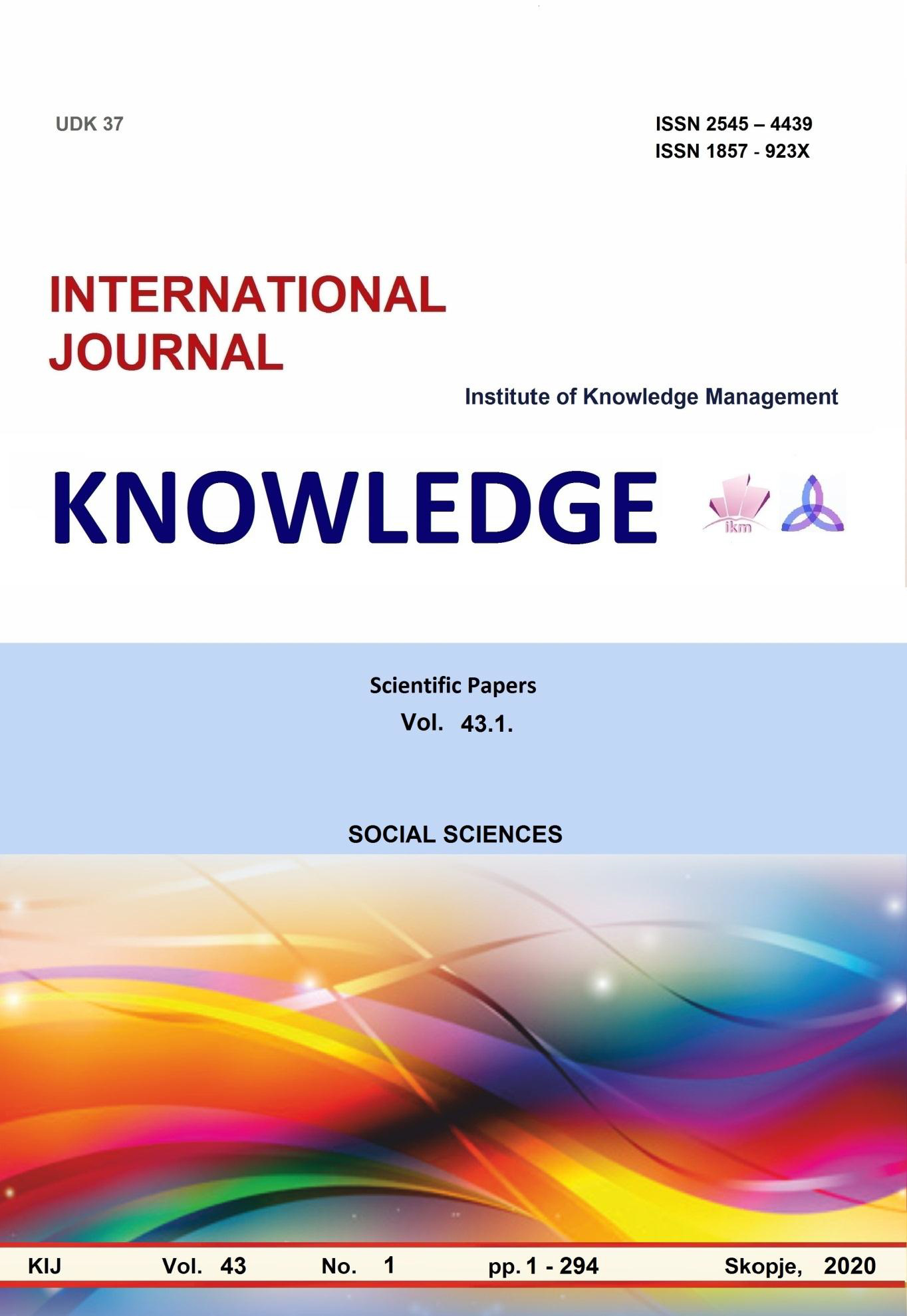DEVELOPMENT OF HUMAN CAPITAL IN BULGARIAN SCHOOLS - A CONDITION FOR AN INNOVATIVE SOCIO-CULTURAL EDUCATIONAL ENVIRONMENT
DEVELOPMENT OF HUMAN CAPITAL IN BULGARIAN SCHOOLS - A CONDITION FOR AN INNOVATIVE SOCIO-CULTURAL EDUCATIONAL ENVIRONMENT
Author(s): Boryana DimitrovaSubject(s): Social Sciences
Published by: Scientific Institute of Management and Knowledge
Keywords: human capital; teachers; qualification; salaries;innovations;
Summary/Abstract: The systems of primary and secondary education in Bulgaria are in transition - many teachers are retiring and younger people need to successfully succeed them so that the society may develop optimally. Without well-trained human capital, the educational system would collapse and would not fulfill its intended purpose - to create well-prepared personnel to carry out the material and non-material reproduction in the future. Well-trained pedagogues can successfully transfer their knowledge to the pupils. An essential element of good pedagogical practice is the innovation, the introduction of new training and education methods aimed at improving educational outcomes and increasing critical thinking and creativity of students. The purpose of this article is to summarize the results of a broader study on the topic of the development of human capital in Bulgarian schools for an innovative socio-cultural environment. The study examines the need for well-trained teachers to provide quality and innovative education, where this need stems from, and how to satisfy it at the present stage in the development of the Bulgarian system of primary and secondary education. The methodology includes a review of the main laws, ordinances, strategies, and other documents, related to the sphere of school education; a long-term case-study of the development of the teaching profession in Bulgaria; and a self-administered survey conducted among teachers in Blagoevgrad, Bulgaria through a closed-question questionnaire. Some of the questions had the option of allowing the respondents to provide additional information in freestyle. The questionnaire was filled by 68 respondents. The results could be summarized as follows: the shortage of qualified teachers is addressed through (1) changes that will make the teaching profession in Bulgaria once again desired by young people, incl. significant rise in starting salary; (2) by increasing the state admission in the higher education institutions in the pedagogical specialties, and (3) through changes in the direction of continuing qualification of the already operating pedagogues – with the adoption of the new Law on pre-school and school education in 2016, requirements for the continuing qualification of teachers were once again laid down at the statutory level; now school principals have dedicated funds to help them continue the training of the teachers, that are subordinate to them and teachers themselves have a statutory requirement to spend a certain number of hours in upgrading their qualification for a given evaluation period to maintain their position.
Journal: Knowledge - International Journal
- Issue Year: 43/2020
- Issue No: 1
- Page Range: 51 - 57
- Page Count: 7
- Language: English

